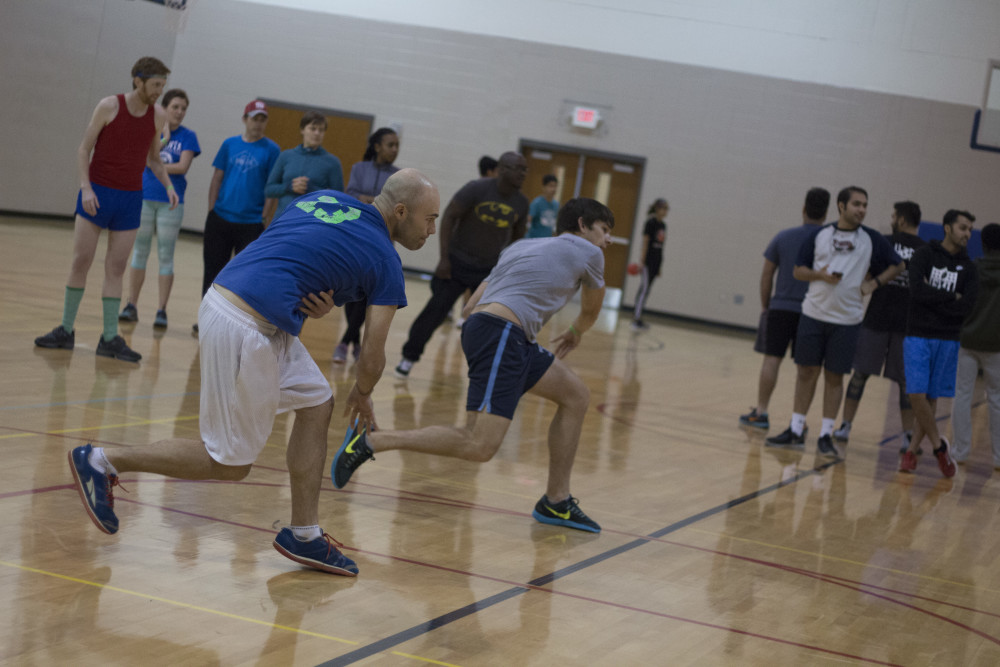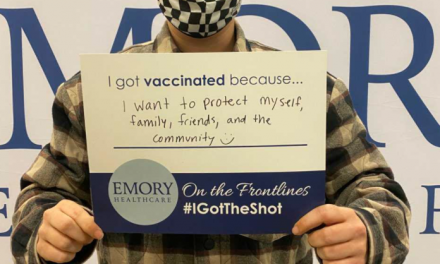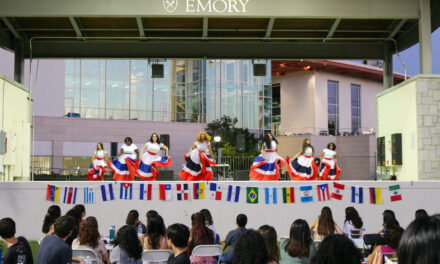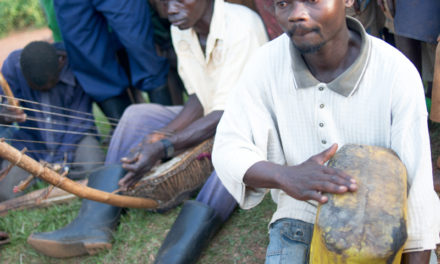Helping Organizations and People Everywhere (HOPE) and Emory’s United Nations International Children’s Emergency Fund (UNICEF) collaborated to put on a dodgeball tournament on March 19. This tournament aimed to raise money for UNICEF’s Tap Project.
According to the UNICEF Tap Project website, the Tap Project is a nationwide campaign to provide clean water and adequate sanitation to children around the world by using money and volunteers to improve access to safe water and sanitation facilities in schools and communities and to promote safe hygiene practices.
“The month of March is designated by UNICEF as the Tap Project, and that is basically raising clean water for children all across the world,” UNICEF President and College junior Yunsun Roh said. “So 100 percent of our fundraised money will go towards UNICEF and helping children.”
Since it’s inception four years ago, HOPE has put on a variety of events including the HOPE Olympics, which included a dodgeball event that spurred community interest in a dodgeball tournament. For each event, UNICEF tries to pick a different nonprofit to work with.
“There’s also a UNICEF fellow that works in Atlanta and works directly with UNICEF,” Roh said. “She reached out to me saying that there was an outside organization that she knows that wants to collaborate with a student campus organization, and she thought Emory would be a really good school to represent Atlanta. We were more than willing to meet up and discuss possible ideas and collaborate, and this is what we decided on.”
The global citizenship fellow at UNICEF who Roh mentioned, Ruhi Rahman, met Co-Founder and Executive Director of HOPE, Inc. Munir Meghjani, who graduated from the College in 2010, at a panel where she talked about UNICEF and the Tap Project.
“For the past three years, we’ve been doing a media campaign for UNICEF Tap [Project] which is basically leave your phone on, [and] as the minutes go by, Giorgio Armani donates money for clean water for individuals who need it, for children specifically,” Meghjani said.
Since players couldn’t use their phones while playing dodgeball, they were encouraged to go on uniceftapproject.org on their phones during the game so that fresh water could be donated for every five minutes they didn’t use their phone. Additionally, during breaks, participants were asked to make sandwiches to donate to the homeless through the crossroad ministry.
Five hundred sandwiches were made for the homeless, and a total of $1,500 was donated to the UNICEF Tap Project. The fundraising goal was $2,000, according to Meghjani. This money came primarily from the 12 teams participating in the event, which totaled 75 players. Additionally there were 25 volunteers and spectators. $1,500 is equal to one year of clean water for 100 people, or roughly four hand pumps, which could serve approximately 1,000 people.
According to Roh, this was Emory UNICEF’s first time collaborating with an outside organization.
UNICEF and HOPE spent over a month planning this event, according to Roh. They advertised through UNICEF’s Facebook page and other social media platforms. HOPE had the connections to get sponsorships and organize various other aspects of the event. Additionally, some members on the HOPE board are alumni of or go to schools somewhere other than Emory. This allowed UNICEF to reach out and make sure that students from other universities were coming to participate in the event.
“We thought it would be really good idea to have an event that unites students across Atlanta,” Roh said. “So not just in Emory, but also GSU [Georgia State University], GTech [Georgia Tech], anyone who is interested in participating for raising money for providing clean water for children.”
Meghjani hoped to raise awareness for UNICEF, raise money to donate to the Tap Project and bring the community together. One of the goals of HOPE is to get a unique group of people to come out to the events. The Teraballs from the Atlanta Jewish Committee and No‘body’ Can Dodge Us, a group from The Mosaic Project which is a nonprofit organization that works to unite children of diverse backgrounds, were some of the eclectic teams that participated. The dodgeball champions were a group called Twerking On It!
“We’ve got a variety of people in there of all ages [and] socioeconomic classes, and they’re shoulder to shoulder,” Meghjani said. “In an era where we have so much negativity, so much racism and so many things to divide us, it’s great to see that something as simple as dodgeball can bring us together.”
Bringing the community together and raising awareness are also two of UNICEF’s largest initiatives, according to Roh.
“Most of the time we’ve stayed with small events on campus: Wonderful Wednesdays, GBMs, documentary screenings,” Roh said. “But actually holding a tournament with an outside organization has pushed our organization to look for bigger opportunities, to make a greater impact,” Roh said.
According to Meghjani, HOPE would like to do this event again in the future. He was happy to see the vast student participation despite their busy schedules.
Roh is one of the students who took the time to do this by planning and participating in the tournament.
“It’s really given me a great outlet to help people beyond my own college bubble,” Roh said. “Since UNICEF is a nationally recognized organization for helping children, I wanted to take my next step as a college student and not just impact my own social bubble but go beyond that and impact the greater world, especially for children who really should be given basic privileges that all of us in college are basically rewarded.”
For Meghjani, it is seeing this commitment to helping those in need that drives him, and consequently HOPE, forward.
“Before every event ends at HOPE, I kind of find a spot where I can kind of just take it all in — Just seeing all these people come together, seeing the nonprofit and the smiles on their faces and seeing everyone have a good time. I think that moment alone is inspiration for the next event,” Meghjani said.
alisha.bhatia.compton@emory.edu | Alisha Compton (19C) is from Chantilly, Va., majoring in neuroscience and behavioral biology and English, with a concentration in creative nonfiction. She previously served as Emory life editor. In addition to the Wheel, she is an undergraduate research assistant at the Grady Trauma Project, a member of the Survivor Anthology and a sister of Gamma Phi Beta sorority.






